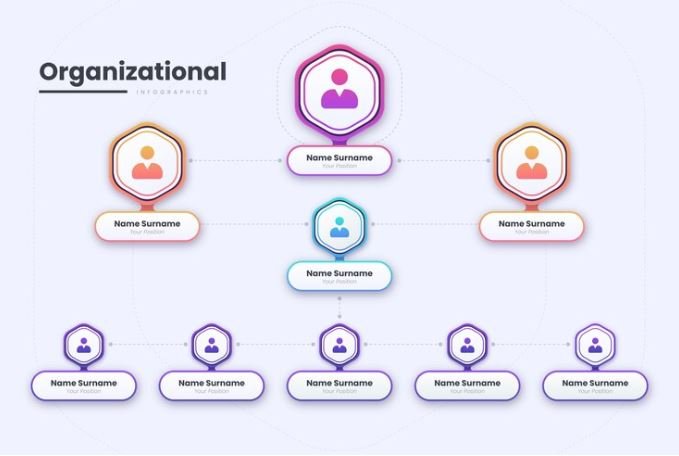Have you ever thought about how people come together in large settings like schools, hospitals or a company? A lot of people working together need to be organized so everything runs fine.
Enter organizational behaviour the study of understanding what people do when they work together and why it is pertinent to a good workplace filled with productivity (i.e. happy employees).
So If we understand why organisational behaviour is important it explains teamwork communication that makes all of us better. It also showed us how to solve problems and have everyone feel respected and included in their work.
What Is Organizational Behavior?
Jonson Organizational behaviour is an academic discipline concerned with describing, understanding, predicting & transforming human behavior in a group of people.
It focuses on things like how people talk to each other, and solve problems or work as a team. Organization is any context where humans band together to achieve a common goal: school, the office or even your sports team.
Because with the understanding of organisational behaviour, leaders and managers know how to organise people, and what decisions take, to work well. Be sure that everyone feels valued and listened to even if the final result will not always be optimal. This supports the entire team to collaborate better.

How Does Organizational Behavior Help?
One can easily assume that all it takes to do a job is just knowing how, but let me tell you this also includes learning and practising interaction with other people. This is where the study of organizational behaviour comes in very handy.
It helps people to know about different personalities and feelings and how they like to work. When people know more about each other, they can work together in such a way that benefits everyone getting along better and becoming higher performers.
One could be great at designing the building, while another might only know how to use tools. However, when they work in tandem, they pool their talents and have a fantastic house.
But mostly they have to be talking amongst each other, ensuring that everyone understands the scheme. Organizational behaviour encourages them to communicate effectively and solve the issues raised.
Teamwork and Cooperation
Organizational behaviour teaches a lot about how essential teamwork is. People dealing with things together do things more than one person who does something.
On the other hand, it allows desired cooperation in brainstorming ideas also assisting each other when moving forward towards a common goal. The analogy of playing on a soccer team is appropriate in that there are many different players, but each has their own skill set and working together produces the desired outcome which is to win.
As we also learn in organizational behaviour, everyone performing their role and being on the same page can allow a team to flourish. It also teaches us that teamwork is not only about grinding, but it’s about respecting one another and listening to different ideas while embracing who needs the most help.
Whatever the workplace or organisation, people need to trust and collaborate. It gets faster and the work is done better when everyone has a say in what they can do.
Leadership and Decision Making
Every group or organization requires leadership. Choose paths for team building, take decisions and solve problems. Leadership is a key topic in any discussion of group and organizational behaviour Leader must know how to Work with the team, Make the right decisions and keep everyone focused on their Goals.
But leadership is more than just about ordering people around. A great leader listens to what the team has input in a way that enables them all to feel like there is room.
Leaders also resolve conflicts, which are arguments or misunderstandings that can occur if people want different things. However, organizational behaviour can help teach leaders how to manage conflict by conducting discussions and resolving disputes effectively so that everyone wins.
Another major part of organizational behaviour is decision-making, which leadership also involves. Decisions need to benefit the greater team. They need to be intentional; they must listen, and make decisions that support everyone getting closer towards their goals.
Communication Is Key
Do you remember playing that game where something is whispered down the line? What comes in the beginning changes completely by the time, it covers to last person.
Because communication is hard, and things just get lost in translation. Communication is critical in the workplace to ensure that everyone knows what needs doing and why it matters.
Learning the Human Element: Organizational behaviour teaches us how to communicate openly and unambiguously. It involves exchanging ideas, instructing and listening. Communication Avoids Misunderstandings and Ensures by way of example, Everybody Understand What is Required.
This could be as simple a thing that by the tongue of “explanation” some students will receive it, but failing to understand correctly others might not do things the right way.
However, if the teacher does explain things well and makes sure everyone can do their part successfully, then you will have a successful project. That applies in a corporation as well where clarity reduces ambiguity and everyone is freed to perform their best.

Motivating People
It is the drive that makes you get out of bed in the morning and go to work so that become Achieve success. What motivates one person may not motivate another. For others, it is the anticipation of money or prizes for themselves and either feeling proud about their work or getting accolades from a boss.
Leaders and managers learned how to motivate their teams in organisational behaviour. Motivated people are eager to work and strive toward achieving their best.
The best place to work- is one that fully gets what pushes an individual and finds a way of providing it, keeping the members happy, content and goal-oriented.
Instead, one might offer additional vacation days or weekly bonuses to employees who are performing excellently. That said, they might also ensure that a hard worker receives recognition in the form of verbal praise or accolades. Both of these things make people feel valued and inspired to keep hustling.
Solving Problems Together
Some issues will arise in all organisations. Sure, maybe one person missed a deadline or two people don’t agree on how to do something. It reduces de facto disagreement In other words, it can create more approaches to problem-solving such that result every body is happy.
One of the easiest ways to solve a problem, is just talking about it. Typically speaking, people generally find a way that fits all parties by coming together and discussing the issue in rational terms.
It also teaches compromise in action, meaning finding a middle ground that both sides would agree with. Organizational behaviour is aimed at managing this entity to make it more effective and efficient through experience so many of these principles are not castles in the cloud but implemented policies at workspaces around us!
For instance, when two students are debating about the game to play during break time they can apply their problem-solving skills to find a common solution.
Maybe they just set up a rotation or find something else that the two of them can do together. This level of problem-solving within an organization helps a team function well as one.
Creating a Positive Work Environment
A good work environment is a place where people are happy, treated with respect and want to come back each day. However, a large portion of creating this environment is thanks to organizational behaviour. People will enjoy their jobs when they learn to work together, communicate and overcome problems.
A positive upbringing also translates into equitability and courtesy. Organizational behaviour teaches people to be kind and fair with each other. When people feel as though they are valued, it often leads to more effort and self-sacrifice come a time of team.
When a noisy, chaotic place hosts people who aren’t accessible to each other are all expected to focus on their work at the same time. This way, if the working environment is quiet and decent or even sympathetic towards one another people will love coming to work every day and they will perform better.
Why Organizational Behavior Is Important
The importance of organizational behaviour cannot be exaggerated. It helps organizations operate, teaching people to collaborate, communicate and solve problems.
If you get down to the bottom of organizational behaviour, people create a positive work environment (and when they do that business tends to run smoother and be more profitable).
This does not only mean completing a job but doing so in the right way, ensuring that everyone is both happy and feels valued. When your organization is team-oriented and focuses on etiquette then the people will be inspired to work cooperatively for any collective task emitting from anywhere.
Conclusion
Organizational behaviour is more than just learning to cooperate. This is more about fostering an environment that encourages and inspires people to do their best.
Understanding how people behave in organizations, will enable leaders and teams to make more optimal decisions, crowd-craft solutions together and enable a great workplace for everyone.
Whether at school, work or on a sports team becoming competent with other humans is one of the most vital skills for success in any group. So, when everyone knows how to communicate correctly with the others in the team and motivate one another to cooperate the strength of this will always be stronger. Organizational behaviour helps in community building, enabling all to sort out their approaches and aims first while working together.


